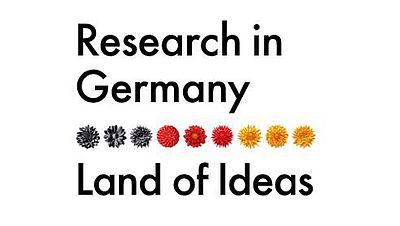
Research
Would you like to do research in Germany? Here you will find out how to start your career in research in Germany in five steps.
Working in Germany as a researcher
The Federal Republic of Germany is one of the most attractive countries in the world for researchers. With the freedom of science guaranteed by the constitution, excellent research infrastructures, good working conditions and career prospects, Germany offers you many opportunities to advance your career in science or in the economic sector. Germany also aims to offer prospects to scientists who do not have the possibility to work freely in their home country.
Employment at a university or a non-academic research institution
Of course, you can also apply for a job position at a German higher education or non-academic research institution. Many universities, as well as universities of applied sciences, are looking for international recruits. You can also combine a job as a research assistant with a doctoral thesis. Non-academic research institutions often have an international focus and offer both jobs and scholarships.
Guest lectureship at a university
As a guest lecturer, you can carry out teaching and research activities at German higher education institutions for a limited period of time. A guest lectureship has advantages for everyone: the students benefit from your expertise and intercultural perspective, while you, in turn, gain useful experience at a German university as well as professional and methodological impulses for your own work.
Employment in the R&D (research and development) department of a company
International researchers have good prospects of finding a job in German companies. There is particularly high demand for skilled workers in areas with an insufficient number of qualified applicants in Germany, such as engineers and IT specialists.
If you are interested in doing research in Germany, feel free to visit the “Research in Germany (External link) ” portal.
Organising your stay as a researcher: financing, visa & more
Job-seeking in science
If you want to conduct research in Germany, it is best to start looking for a job while you are still in your home country. Numerous job portals online provide a job database specifically for research and science. You can find an overview of them on the Research in Germany (External link) website.
Financing and funding
To work as a researcher in Germany, you must prove that you are able to support yourself financially. Many academic employees in Germany are paid according to collective wage agreements and can therefore easily finance their research stay, if they have a full-time job. You can also secure funding for your research stay through a research scholarship. This is especially worthwhile if you want to carry out a project for a limited time period. Many institutions support international researchers from all disciplines. You can find an overview on the Research in Germany (External link) website.
Visa for research: what options exist?
The “Who needs a visa?” section provides information on whether you need an entry visa or a residence permit for your research stay in Germany. You generally need a visa or residence permit if you are not from the EU, EEA or Switzerland.
Citizens of Australia, Israel, Japan, Canada, the Republic of Korea, New Zealand, the United Kingdom of Great Britain and Northern Ireland and the USA can also enter Germany without a visa for a stay that is not a short stay. In this case, you can obtain the required residence permit from your competent foreigners authority in Germany before taking up your employment. If you wish to take up your employment immediately after entering Germany, it may also be possible in individual cases to apply for a corresponding visa before entering the country.
In order to work as a researcher in Germany, you can apply for a visa for research with a hosting agreement from the research institution or a respective contract. If you meet the requirements, you can also apply for an EU Blue Card. In this case, you are free to choose which residence permit best suits your individual situation.
As a doctoral candidate, you also have the right to choose between a visa for studying or a visa for research, depending on which of the residence titles you fulfil the requirements for.
Family reunification and job prospects for spouses
As a citizen of an EU country, your spouse and children have the same rights to freedom of movement as you do, and they can move here with you without a visa. If you are not from the EU but have a residence permit as a researcher, your spouse also has the right to a residence permit with which they can take up any job in Germany. Of course, you can bring your children with you. You can find more information about school and childcare in the "Family life in Germany" section.
Career opportunities for spouses: many higher education and research institutions in Germany will support your partner in their job search. So-called Dual Career Services as well as the universities’ Welcome Centres accompany you and your family on your way to Germany and support you in settling in. About 40 universities and research institutions are currently represented in the Dual Career Network Germany (External link) (DCND). If your employer of choice is not on this list, why not ask them directly about their family support services?
Do I need German language skills?
As a scientist, you usually do not have to prove any skills regarding your proficiency in German due to English being the default language in international research teams. Your spouse does not need to know German either. However, the German language will help you tremendously in your exchanges with German colleagues, students or employees in companies and administration. Language skills also help you and your family in settling in and finding a new home and friends in Germany. Here you can find useful tips concerning the German language.

Video: “As a researcher, you feel at home here”
Information on the web
- Kooperation International Information on doctoral studies and research in Germany
- Research in Germany Research and career in Germany
- Germany's Universities of Excellence Information about the Excellence Initiative and top-level research
- EURAXESS - Researchers in Motion Information and advice point for internationally mobile researchers
- German Science Organizations Association of major science and research organisations
- Research in Bavaria Information on a Career in Research in Bavaria
Do you have any questions?
Let us advise you on your opportunities to work and live in Germany. Our experts will support you with questions regarding job search, visa, recognition and learning German.
You can find out more about the various contact options by clicking on one of the icons in the bar below.



